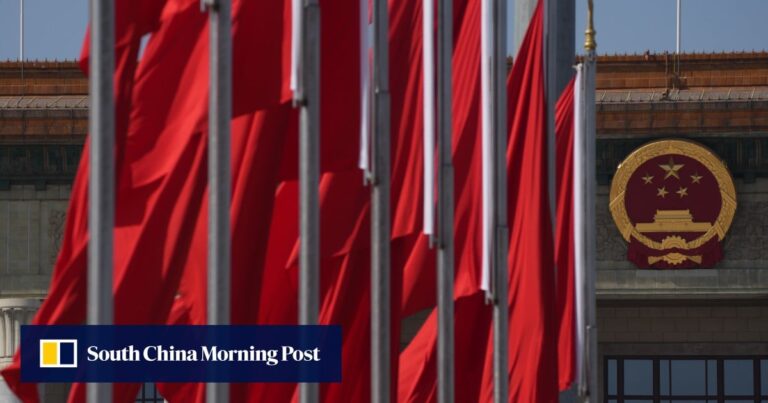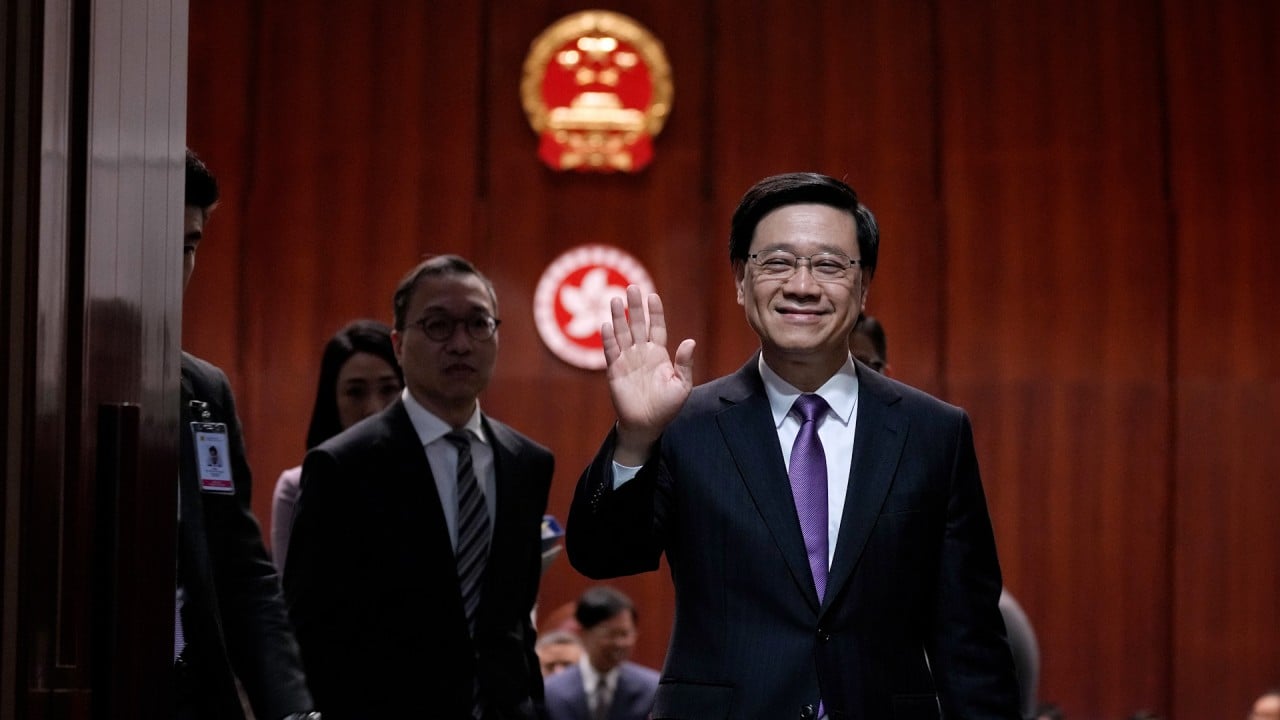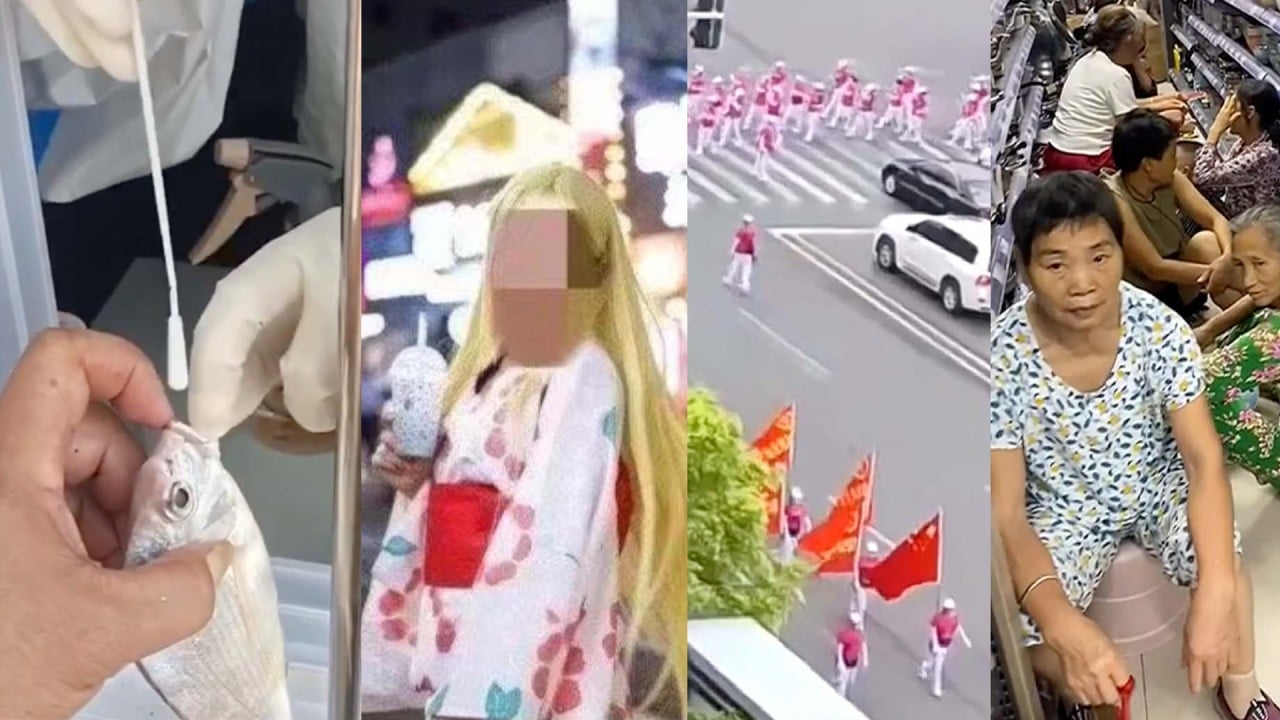The original clause, “producing, distributing, propagating or disseminating any articles or statements harmful to the spirit and feelings of the Chinese nation,” was deleted from the text.
In the first amendment announced in September, the article listed six acts that could lead to detention for up to 15 days, including “wearing, displaying or adorning in a public place, or forcing others to wear, display or adorn, any garment or symbol that is harmful to the spirit or feelings of the Chinese nation.”
Shen Chunyao, vice-chairman of the NPC’s Constitutional and Legal Affairs Committee, said on Tuesday that the phrases “harmful to the spirit of the Chinese nation” and “hurt the feelings of the Chinese nation” in the previous version of Article 34 had been deleted.
The Communist Party’s official newspaper, People’s Daily, quoted Shen as saying the expression was subjective and could be misleading, and “its meaning is difficult to define legislatively and difficult for law enforcement agencies to grasp.”
“There is a concern that law enforcement may infringe on the legitimate rights and normal lives of citizens. Taking into consideration various factors and the need for law enforcement, this wording will not be used in the proposed amendment.”
The article on clothing has been amended to read, “Wearing, displaying or decorating in a public place, or forcing others to wear, display or decorate, any clothing or symbol that promotes or glorifies wars of aggression or aggressive acts or that has a negative social impact.”
Observers said the revision was a positive sign.
“It is really heartening that the NPC has seriously considered the public’s views on Article 34 of the Constitution and chosen to remove the vague and overly broad wording from it,” said Lau Si-tat, professor of law and sociology at the University of Hong Kong.
“There is no denying that thoughtful input from legal scholars and ordinary citizens has influenced the legislative process. This move is a hopeful sign for China’s ongoing legal reform.”
Liu said a key aspect of legislation is to minimise ambiguity, as unclear legal wording could lead to excessive or even malicious interpretation in enforcement.
“This is particularly important for laws that relate to personal liberties, such as the Public Order Management and Punishment Act.”
According to the NPC website, a total of 93,975 people submitted 125,962 opinions on the first draft amendment during September.
A Shanghai-based lawyer said the changes would prevent abuse of administrative power and reduce situations in which government enforcement infringes on individual freedoms.
She said removing the vague and controversial language would make the law’s intent on administrative penalties clearer, which would be a positive development.
While violations of the law are not considered a crime, violators can be subject to fines, imprisonment, public records and could affect future education and employment prospects.
Lawyers and experts had expressed concern that the proposed Article 34 could incite extreme nationalism and create an environment to stifle dissent and justify discrimination using vague language such as “harmful to the spirit of the Chinese nation.”
“This article should never have been passed. [in the first place] “‘Harm to the mind and feelings of the Chinese nation’ is vague and usually relates to personal actions that do not cause actual harm to others, so it should be judged only by moral norms, not written regulations backed by government power,” said a Beijing-based lawyer, speaking on condition of anonymity due to the sensitivity of the issue.
Critics point to several worrying developments in the rise of nationalist sentiment in China.
The company has not been the target of police crackdowns, but some nationalist groups have launched a campaign against it, accusing it of “betraying the nation” and “undermining national interests”. The company has also been accused of being too profit-oriented and not doing enough to ensure the safety of China’s water resources.



